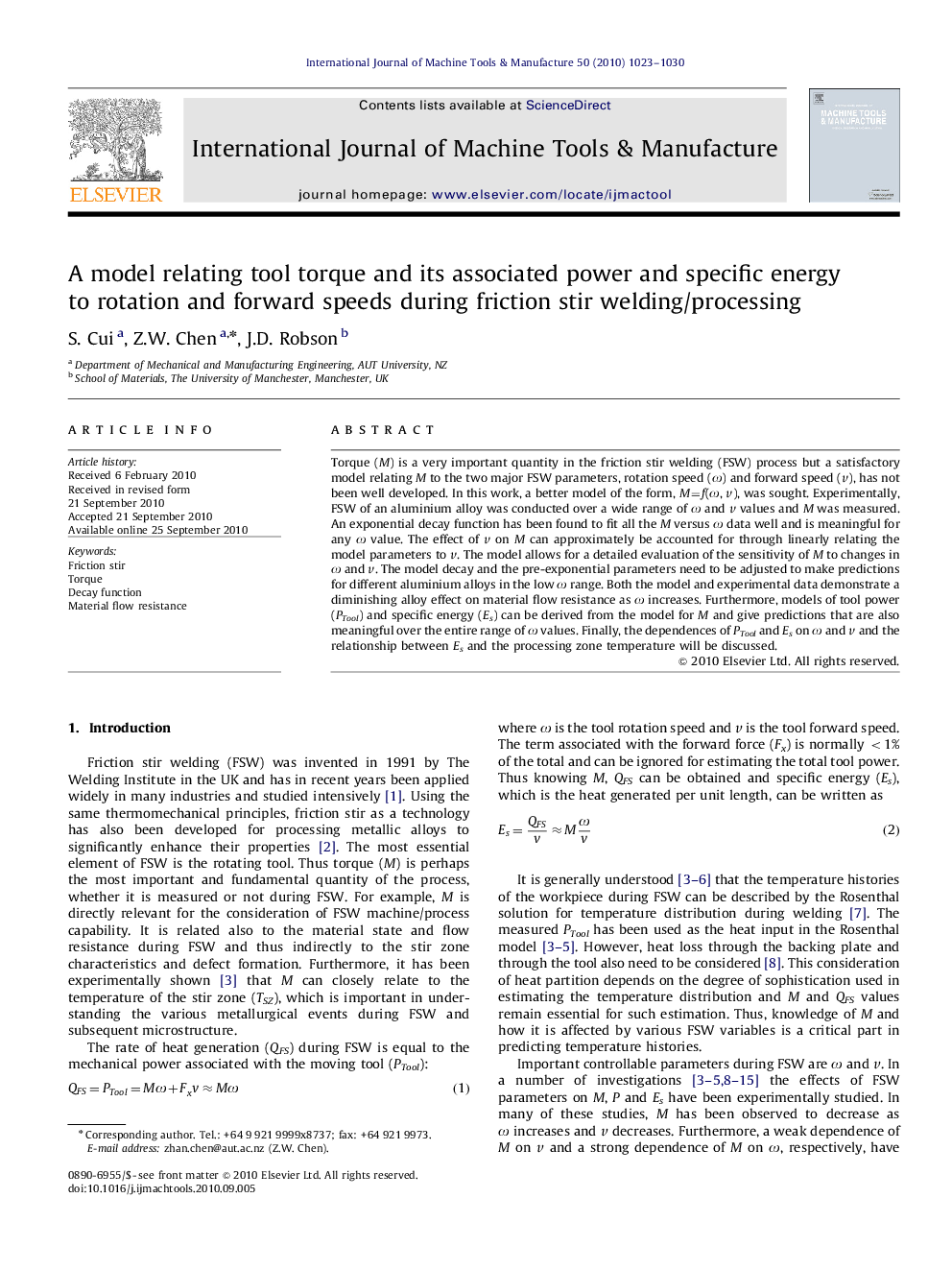| Article ID | Journal | Published Year | Pages | File Type |
|---|---|---|---|---|
| 780685 | International Journal of Machine Tools and Manufacture | 2010 | 8 Pages |
Torque (M) is a very important quantity in the friction stir welding (FSW) process but a satisfactory model relating M to the two major FSW parameters, rotation speed (ω) and forward speed (v), has not been well developed. In this work, a better model of the form, M=f(ω, v), was sought. Experimentally, FSW of an aluminium alloy was conducted over a wide range of ω and v values and M was measured. An exponential decay function has been found to fit all the M versus ω data well and is meaningful for any ω value. The effect of v on M can approximately be accounted for through linearly relating the model parameters to v. The model allows for a detailed evaluation of the sensitivity of M to changes in ω and v. The model decay and the pre-exponential parameters need to be adjusted to make predictions for different aluminium alloys in the low ω range. Both the model and experimental data demonstrate a diminishing alloy effect on material flow resistance as ω increases. Furthermore, models of tool power (PTool) and specific energy (Es) can be derived from the model for M and give predictions that are also meaningful over the entire range of ω values. Finally, the dependences of PTool and Es on ω and v and the relationship between Es and the processing zone temperature will be discussed.
